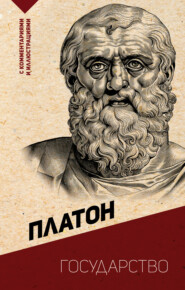По всем вопросам обращайтесь на: info@litportal.ru
(©) 2003-2025.
✖
The Republic
Настройки чтения
Размер шрифта
Высота строк
Поля
Further, the very faculty which is the instrument of judgment is not possessed by the covetous or ambitious man, but only by the philosopher?
What faculty?
Reason, with whom, as we were saying, the decision ought to rest.
Yes.
And reasoning is peculiarly his instrument?
Certainly.
If wealth and gain were the criterion, then the praise or blame of the lover of gain would surely be the most trustworthy?
Assuredly.
Or if honour or victory or courage, in that case the judgment of the ambitious or pugnacious would be the truest?
Clearly.
But since experience and wisdom and reason are the judges —
The only inference possible, he replied, is that pleasures which are approved by the lover of wisdom and reason are the truest.
And so we arrive at the result, that the pleasure of the intelligent part of the soul is the pleasantest of the three, and that he of us in whom this is the ruling principle has the pleasantest life.
Unquestionably, he said, the wise man speaks with authority when he approves of his own life.
And what does the judge affirm to be the life which is next, and the pleasure which is next?
Clearly that of the soldier and lover of honour; who is nearer to himself than the money-maker.
Last comes the lover of gain?
Very true, he said.
Twice in succession, then, has the just man overthrown the unjust in this conflict; and now comes the third trial, which is dedicated to Olympian Zeus the saviour: a sage whispers in my ear that no pleasure except that of the wise is quite true and pure – all others are a shadow only; and surely this will prove the greatest and most decisive of falls?
Yes, the greatest; but will you explain yourself?
I will work out the subject and you shall answer my questions.
Proceed.
Say, then, is not pleasure opposed to pain?
True.
And there is a neutral state which is neither pleasure nor pain?
There is.
A state which is intermediate, and a sort of repose of the soul about either – that is what you mean?
Yes.
You remember what people say when they are sick?
What do they say?
That after all nothing is pleasanter than health. But then they never knew this to be the greatest of pleasures until they were ill.
Yes, I know, he said.
And when persons are suffering from acute pain, you must have heard them say that there is nothing pleasanter than to get rid of their pain?
I have.
And there are many other cases of suffering in which the mere rest and cessation of pain, and not any positive enjoyment, is extolled by them as the greatest pleasure?
Yes, he said; at the time they are pleased and well content to be at rest.
Again, when pleasure ceases, that sort of rest or cessation will be painful?
Doubtless, he said.
Then the intermediate state of rest will be pleasure and will also be pain?
So it would seem.
But can that which is neither become both?
I should say not.
And both pleasure and pain are motions of the soul, are they not?
Yes.
But that which is neither was just now shown to be rest and not motion, and in a mean between them?
Yes.
How, then, can we be right in supposing that the absence of pain is pleasure, or that the absence of pleasure is pain?
Impossible.
This then is an appearance only and not a reality; that is to say, the rest is pleasure at the moment and in comparison of what is painful, and painful in comparison of what is pleasant; but all these representations, when tried by the test of true pleasure, are not real but a sort of imposition?
That is the inference.

















